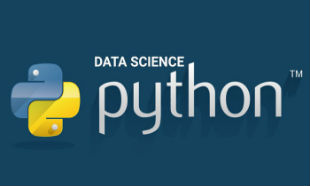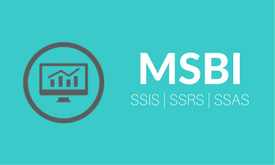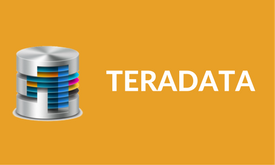Data Science with Python Training in Porur Chennai
Greens Technologys located in Porur provides Data Science with Python training in Chennai. Learn analytics from data manipulation to predictive modeling - using Python. Get certified in 6 weeks.
In this Python Certification Training, you’ll become an expert in analytics techniques using the Python data science tool. Python Training institute in Chennai for Data Science offers a comprehensive learning foundation that you can build your analytics career on.
About Our Trainer
- Karthik is an experienced statistician and data miner with more than 10+ years of experience using R, Python and SAS and a passion for building analytical solutions. He is a M.S. in Quantitative Economics and Applied Mathematics graduate who has analytics experience working with companies like Capital One, Walmart, ICICI Lombard etc.
Karthik is a lead Data Scientist at Citi Bank. As a Certified Predictive Modeler, Statistical Business Analyst, and Certified Advanced Programmer, Karthik is passionate about sharing his knowledge on how data science can support data-driven business decisions.
Qualification: M.S. in Statistics
Membership American Statistical Association
Want a free career Advice or any career related queries? Reach him by
+91- 8939915572
Curriculum
Data Science with Python Training Course Content
Python Data Science Topics
Learn to use Python as your Data Science tool of choice This course teaches you Python as a tool for data science, and specifically for implementing an advanced Machine Learning algorithm with Python
- Critical Python programming skills.
- Accessing, transforming and manipulating data.
- Improving data quality for reporting and analytics.
- Fundamentals of statistics and analytics.
- Working with Hadoop, Hive, Pig and SAS.
- Exploring and visualizing data.
- Essential communication skills.
- Machine learning and predictive modeling techniques.
- How to apply these techniques to distributed and in-memory big data sets.
- Pattern detection.
- Experimentation in business.
- Optimization techniques.
- Time series forecasting.
Getting Started with Python
- Python Overview
- About Interpreted Languages
- Advantages/Disadvantages of Python pydoc.
- Starting Python
- Interpreter PATH
- Using the Interpreter
- Running a Python Script
- Python Scripts on UNIX/Windows
- Python Editors and IDEs.
- Using Variables
- Keywords
- Built-in Functions
- StringsDifferent Literals
- Math Operators and Expressions
- Writing to the Screen
- String Formatting
- Command Line Parameters and Flow Control.
Sequences and File Operations
- Lists
- Tuples
- Indexing and Slicing
- Iterating through a Sequence
- Functions for all Sequences
- Using Enumerate()
- Operators and Keywords for Sequences
- The xrange() function
- List Comprehensions
- Generator Expressions
- Dictionaries and Sets.
Deep Dive – Functions Sorting Errors and Exception Handling
- Functions
- Function Parameters
- Global Variables
- Variable Scope and Returning Values. Sorting
- Alternate Keys
- Lambda Functions
- Sorting Collections of Collections
- Sorting Dictionaries
- Sorting Lists in Place
- Errors and Exception Handling
- Handling Multiple Exceptions
- The Standard Exception Hierarchy
- Using Modules
- The Import Statement
- Module Search Path
- Package Installation Ways.
Regular Expressionsit’s Packages and Object Oriented Programming in Python
- The Sys Module
- Interpreter Information
- STDIO
- Launching External Programs
- PathsDirectories and Filenames
- Walking Directory Trees
- Math Function
- Random Numbers
- Dates and Times
- Zipped Archives
- Introduction to Python Classes
- Defining Classes
- Initializers
- Instance Methods
- Properties
- Class Methods and DataStatic Methods
- Private Methods and Inheritance
- Module Aliases and Regular Expressions.
Debugging, Databases and Project Skeletons
- Debugging
- Dealing with Errors
- Using Unit Tests
- Project Skeleton
- Required Packages
- Creating the Skeleton
- Project Directory
- Final Directory Structure
- Testing your Setup
- Using the Skeleton
- Creating a Database with SQLite 3
- CRUD Operations
- Creating a Database Object.
Machine Learning Using Python
- Introduction to Machine Learning
- Areas of Implementation of Machine Learning
- Why Python
- Major Classes of Learning Algorithms
- Supervised vs Unsupervised Learning
- Learning NumPy
- Learning Scipy
- Basic plotting using Matplotlib
- Machine Learning application
Supervised and Unsupervised learning
- Classification Problem
- Classifying with k-Nearest Neighbours (kNN)
Algorithm
- General Approach to kNN
- Building the Classifier from Scratch
- Testing the Classifier
- Measuring the Performance of the Classifier.
- Clustering Problem
- What is K-Means Clustering
- Clustering with k-Means in Python and an
Application Example.
- Introduction to Pandas
- Creating Data Frames
- GroupingSorting
- Plotting Data
- Creating Functions
- Converting Different Formats
- Combining Data from Various Formats
- Slicing/Dicing Operations.
Scikit and Introduction to Hadoop
- Introduction to Scikit-Learn
- Inbuilt Algorithms for Use
- What is Hadoop and why it is popular
- Distributed Computation and Functional Programming
- Understanding MapReduce Framework Sample MapReduce Job Run.
Hadoop and Python
- PIG and HIVE Basics
- Streaming Feature in Hadoop
- Map Reduce Job Run using Python
- Writing a PIG UDF in Python
- Writing a HIVE UDF in Python
- Pydoop and MRjob Basics.
Python Project Work
- Real world project
Data Science with Python Training Course description
The Data Science with Python course is designed to impart an in-depth knowledge of the various libraries and packages required to perform data analysis, data visualization, web scraping, machine learning, and natural language processing using Python. The course is packed with real-life projects, assignment, demos, and case studies to give a hands-on and practical experience to the participants. Mastering Python and using its packages: The course covers PROC SQL, SAS Macros, and various statistical procedures like PROC UNIVARIATE, PROC MEANS, PROC FREQ, and PROC CORP. You will learn how to use SAS for data exploration and data optimization. Mastering advanced analytics techniques: The course also covers advanced analytics techniques like clustering, decision tree, and regression. The course covers time series, it's modeling, and implementation using SAS. As a part of the course, you are provided with 4 real-life industry projects on customer segmentation, macro calls, attrition analysis, and retail analysis.
Python Training Objectives
- Gain an in-depth understanding of data science process, data wrangling, data exploration, data visualization, hypothesis building, and testing. You will also learn the basics of statistics.
- Install the required Python environment and other auxiliary tools and libraries
- Understand the essential concepts of Python programming like data types, tuples, lists, dicts, basic operators, and functions.
- Perform high-level mathematical computing using NumPy package and its large library of mathematical functions
- Perform scientific and technical computing using SciPy package and its sub-packages such as Integrate, Optimize, Statistics, IO, and Weave.
- Perform data analysis and manipulation using data structures and tools provided in Pandas package
- Gain expertise in machine learning using the Scikit-Learn package
- Gain an in-depth understanding of supervised learning and unsupervised learning models like linear regression, logistic regression, clustering, dimensionality reduction, K-NN, and pipeline
- Use Scikit-Learn package for natural language processing
- Use matplotlib library of Python for data visualization
- Extract useful data from websites by performing web scrapping using Python
- Integrate Python with Hadoop, Spark, and MapReduce
Who should take this Python Data Scientist course?
There is an increasing demand for skilled data scientists across all industries that makes this course suitable for participants at all levels of experience. We recommend this data science training especially for the following professionals:
- Analytics professionals who want to work with Python
- Software professionals looking for a career switch in the field of analytics
- IT professionals interested in pursuing a career in analytics
- Graduates looking to build a career in Analytics and Data Science
- Experienced professionals who would like to harness data science in their fields
- Anyone with a genuine interest in the field of Data Science







